What’s in a label? Is it about aesthetics, brand identity, or perhaps the narrative it carries? Think of a label like a business card for a brand. A good one should show what the brand is all about and bring the creator’s ideas to life in a way you can see. Then, there’s the aspect of lifestyle alignment. Does it resonate with the targeted demographic’s identity and aspirations?
On the other hand, labels aren’t static. They have to keep up with the latest trends and what people want. Above all, a label has to stand out on crowded shelves. So what’s in a label? Apparently, a great deal.
Crafting a label involves careful consideration — they become focal points in conversations, and in today’s context, that takes on a whole new significance.
4 Pines Brewing Co. recently released a Tasmanian Pilsner with a rather attention-grabbing label in sky blue with red seaweed waves and birds in the clouds. A caption box with large lettering poses the question: Why is There Seaweed in My Beer? Just below the top rim, it reads “Good Beer that Gives Back.” While it shares the nature theme seen in their other 4 Pines beer cans, this one stands out for a good reason.
“We added a small amount of nori seaweed into our beer to get those conversations started,” says Sarah Turner, 4 Pines environmental and social impact advisor.
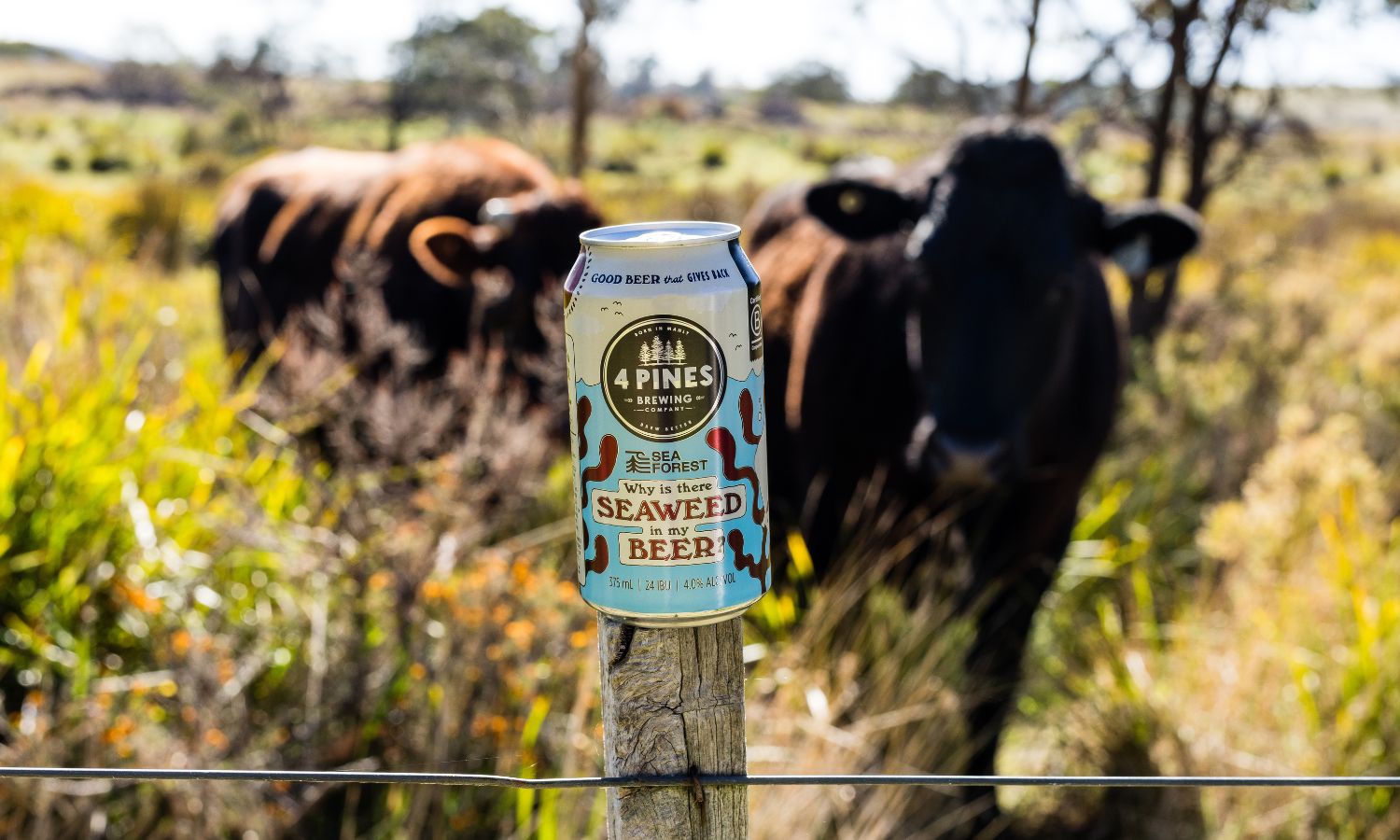
The conversation Turner is referring to is climate change. The beer promotes Sea Forest’s innovative Asparagopsis seaweed-based supplement, SeaFeed. Sea Forest is a science-based environmental technology company harnessing the power of Australian seaweed to drive sustainable long-term solutions to climate change and global food security challenges.
“It’s scientifically proven that Seafeed can reduce the methane emissions that cows produce by up to 98%,” Turner explains. “We’re also currently exploring and undertaking trials that could see us donate spent grain to cattle farmers”.
Recently, Sea Forest partnered with the University of Tasmania’s Institute for Marine and Antarctic Studies (IMAS), one of the world’s leading environmental institutions. Their joint initiative involves launching the southern hemisphere’s inaugural forest-scale kelp restoration project, with the aim of establishing a self-sustaining giant kelp forest in Tasmania.
When asked why 4 Pines Brewing Co. chose to support Sea Forest, Turner’s answer was straightforward: “We heard about the good work Sea Forest does and we were excited to explore how their innovative solution to address climate change by reducing agricultural emissions could be supported and promoted by the brewing industry.”
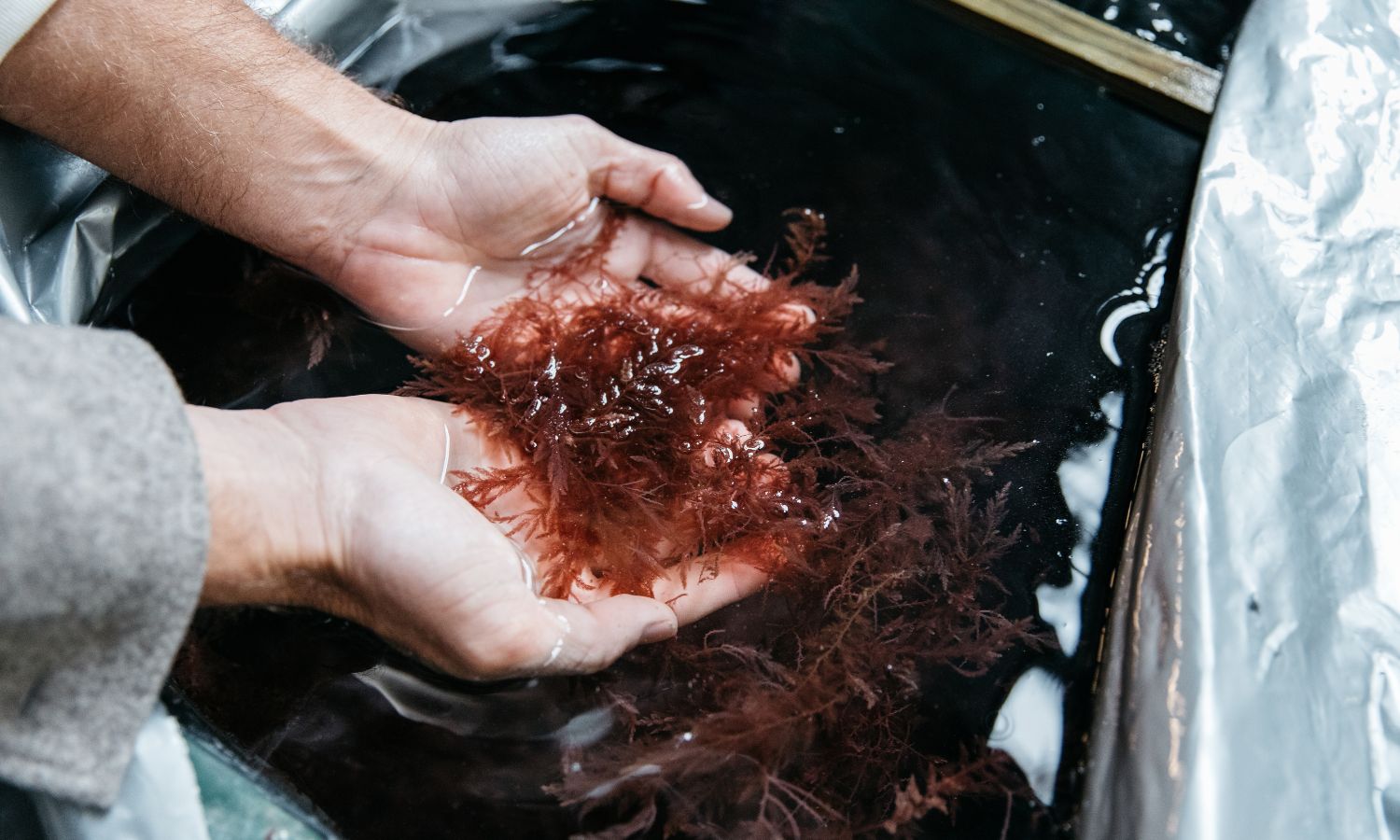
If you were wondering what it tastes like, think sweet and salty with a side of umami that tickles the tastebuds. The seaweed is added during the hot side of the boil, which gives it that salt-umami character and a little bit of sweetness, explains Turner.
Apart from making a great-tasting beer with an eye-catching label, can they make a change? Turner thinks so, stating, “Beers can change the world.”
“It’s a powerful opportunity for us to encourage consumers to think about how they can contribute and what other organisations are doing to create a positive impact”.
The beer is also the first step in a long partnership, says Turner. She hopes that the impact of the partnership becomes permanent.
“If supported by the government, it could help facilitate a big impact for the brewing industry and for farmers in general.”
4 Pines’ Tasmanian seaweed Pilsner is part of a new wave of unlikely heroes emerging in the fight against environmental degradation.
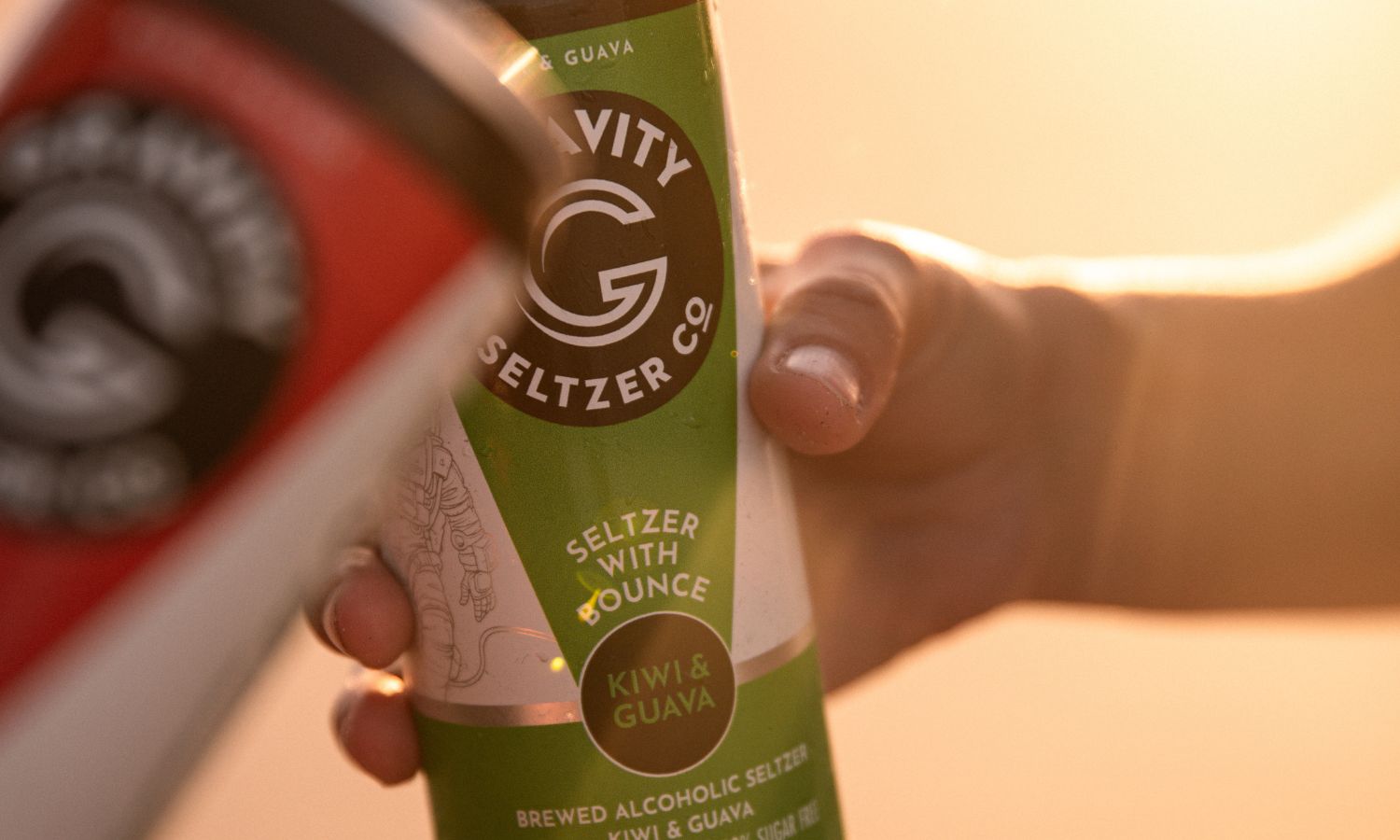
The New Heroes
We’re living in a world where climate change is no longer a distant threat but a pressing reality and alcohol brands, often associated with celebrations and indulgence, are stepping up to the plate.
Institutional alcohol brands, like Johnnie Walker’s Keep Walking campaign, have been inspiring people around the world with a message of progress and positivity for more than 20 years, but the new players are ramping up the awareness to cater to a new consumer ethos.
Gone are the days when brands could rely solely on the allure of glamorous parties and sophisticated aesthetics to captivate consumers. Today’s younger generation is increasingly conscious of their environmental footprint and companies are taking notice.
Mick Spencer, co-founder of Gravity Seltzer, explains the brand’s identity is “to protect the areas we play in for future generations — mountains, forests, and lakes.”
Launched in the summer of 2022 by Mick Spencer and Liam Battye, the Australian seltzer start-up aimed to be Australia’s best-tasting hard seltzer while inspiring people to #ExploreMore of the outdoors and reconsider their drinking habits.
Since its launch, the response has been notable. Within just 18 months of trading, Gravity Seltzer secured a national First Choice Liquor Deal and now, in a move that demonstrates both ambition and impact, supermarket giant Coles is teaming up with them in their tree-planting initiative to aid reforestation in NSW.
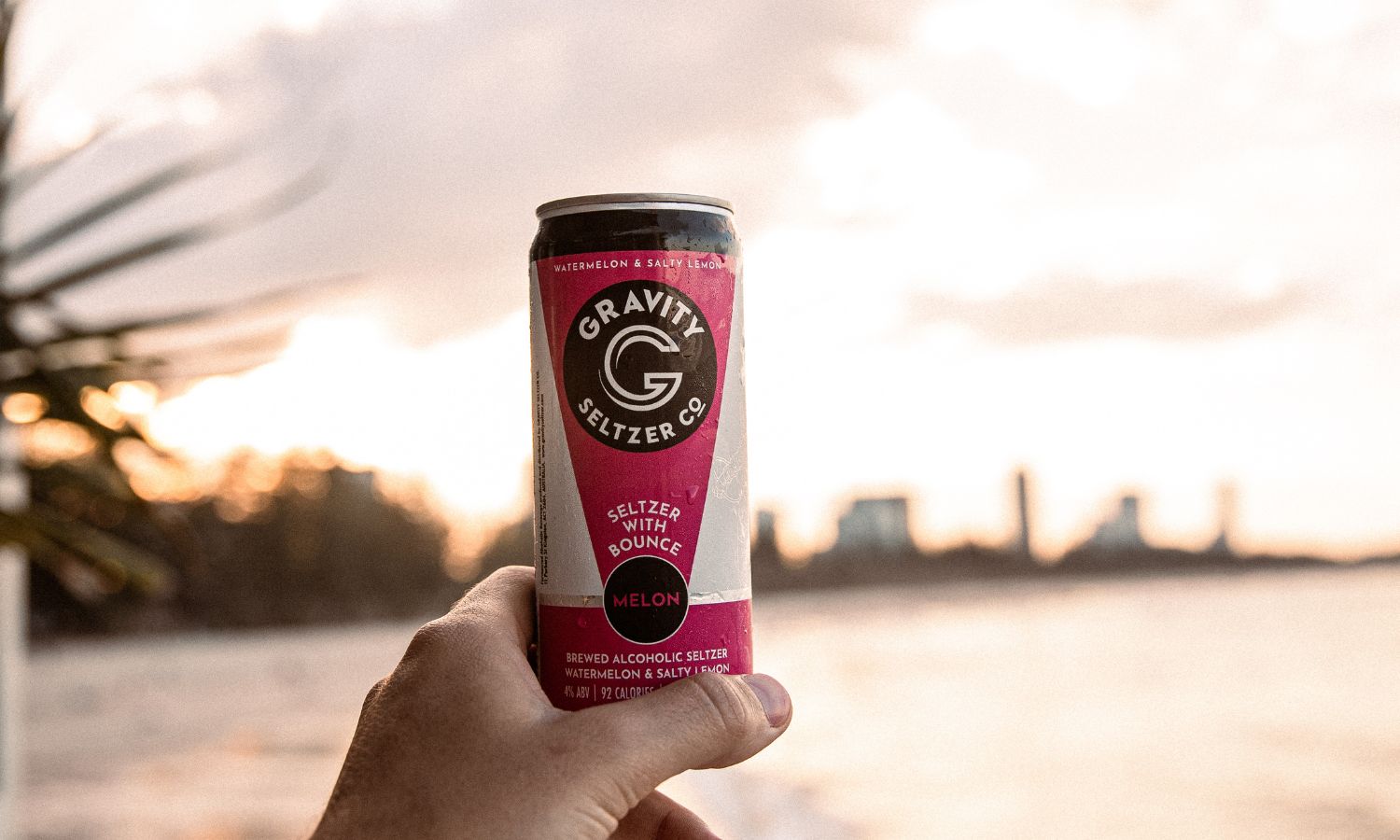
The mixed 10-pack, available at First Choice stores across the country, ensures that with every pack sold, a tree is planted.
“This year alone, we’ve planted over 100,000 square meters of land, restoring it with the trees we’ve planted,” he explains. “We’re using drones that can plant up to 40,000 trees a day, a groundbreaking innovation compared to the 800 trees a day achievable by humans.”
Gravity Seltzer’s mission aligns seamlessly with shifting consumer preferences. As people become more health-conscious, the brand addresses the “better for you” trend by offering gluten-free and vegan options. Then, there is the growing demand for products that contribute positively to the environment.
“In these economic times, people are seeking more value from their purchases,” notes Spencer. “While Gravity may not be the cheapest seltzer on the shelf, it sells well because it’s arguably the best-tasting, and we have an initiative that resonates with people.”
Spencer has an optimistic outlook when it comes to the potential for making a positive impact with alcohol products; “With alcohol, it’s such a volume game that if you get something right, you can genuinely make a significant difference.”
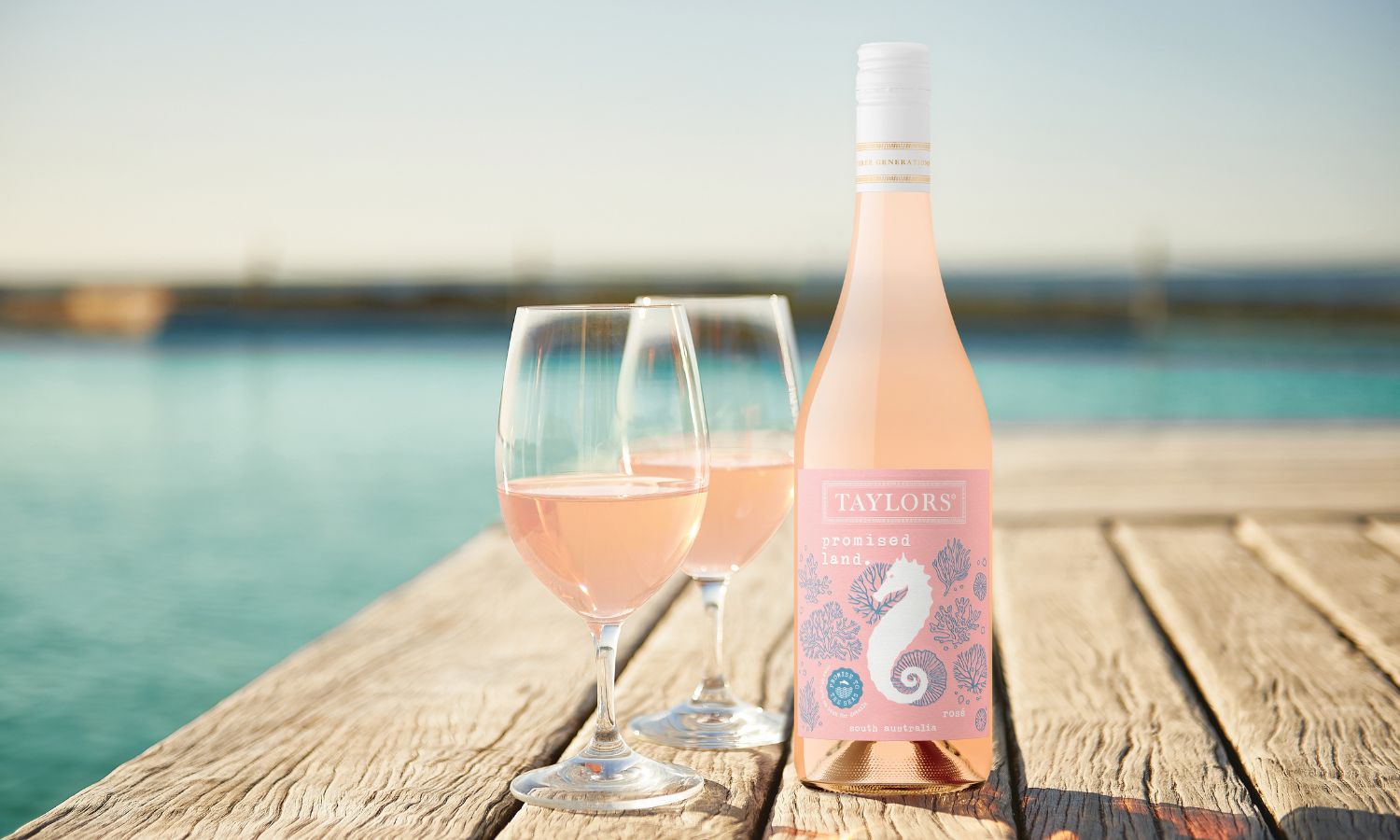
Beyond Public Relations
A commitment to change might seem like a public relations strategy, but it’s becoming more of a genuine effort to address the environmental challenges facing our planet. By supporting climate change initiatives, alcohol brands are signalling to consumers that they are aware of the issues at hand and actively participating in finding solutions.
When Mitchell Taylor, managing director and third-generation winemaker at Taylors Wines, dug a dam on their vineyard property in the late ’60s, they came across tiny fossilised seahorses embedded into the limestone soils. “This signified to us that these were rich maritime soils, filled with promise to grow vines and produce exceptional fruit for our wines,” says Taylor. “But today, the seahorses mean much more than that.”
Channelling this origin story, Taylors Wines has embraced a dedicated stance in support of seahorse conservation through their ‘Promise to the Seas’ campaign, which donates a portion of sales proceeds from their Promised Land range to marine conservation charity Project Seahorse.
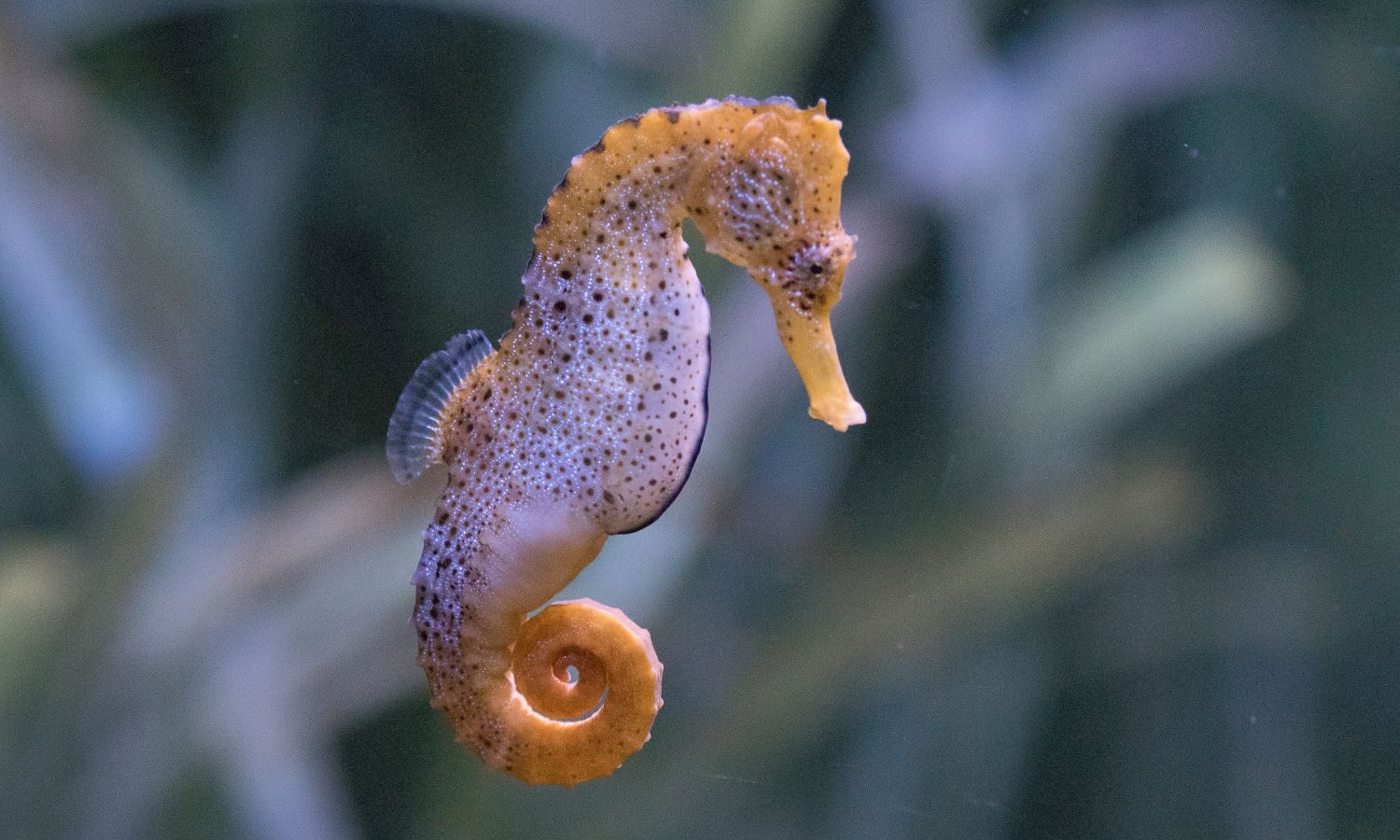
Taylor explains the seemingly unexpected alliance between winemakers and marine scientists, pointing out that seahorses, akin to grapevines, function as indicator species. These creatures are among the first to feel the impacts of a changing climate, acting as harbingers for broader climate-related issues.
“By getting it right for seahorses, you’re getting it right for thousands of other species.”
In our business, sustainability is at the heart of everything we do, and that includes our winemaking practices, our packaging, our Clare Valley cellar door and much more, says Taylor.
“It’s integral to the future generations of our family wine business that we get it right. We know Taylors’ wine drinkers feel the same, so we spend a great deal of time doing what we can to promote these campaigns and the causes that are near to us.”
“We winemakers have been feeling the effects of climate change in a big way, particularly over the last few years when our vines have been battered by summer bushfires, floods, and frosts, so this topic is front of mind for us every day”.
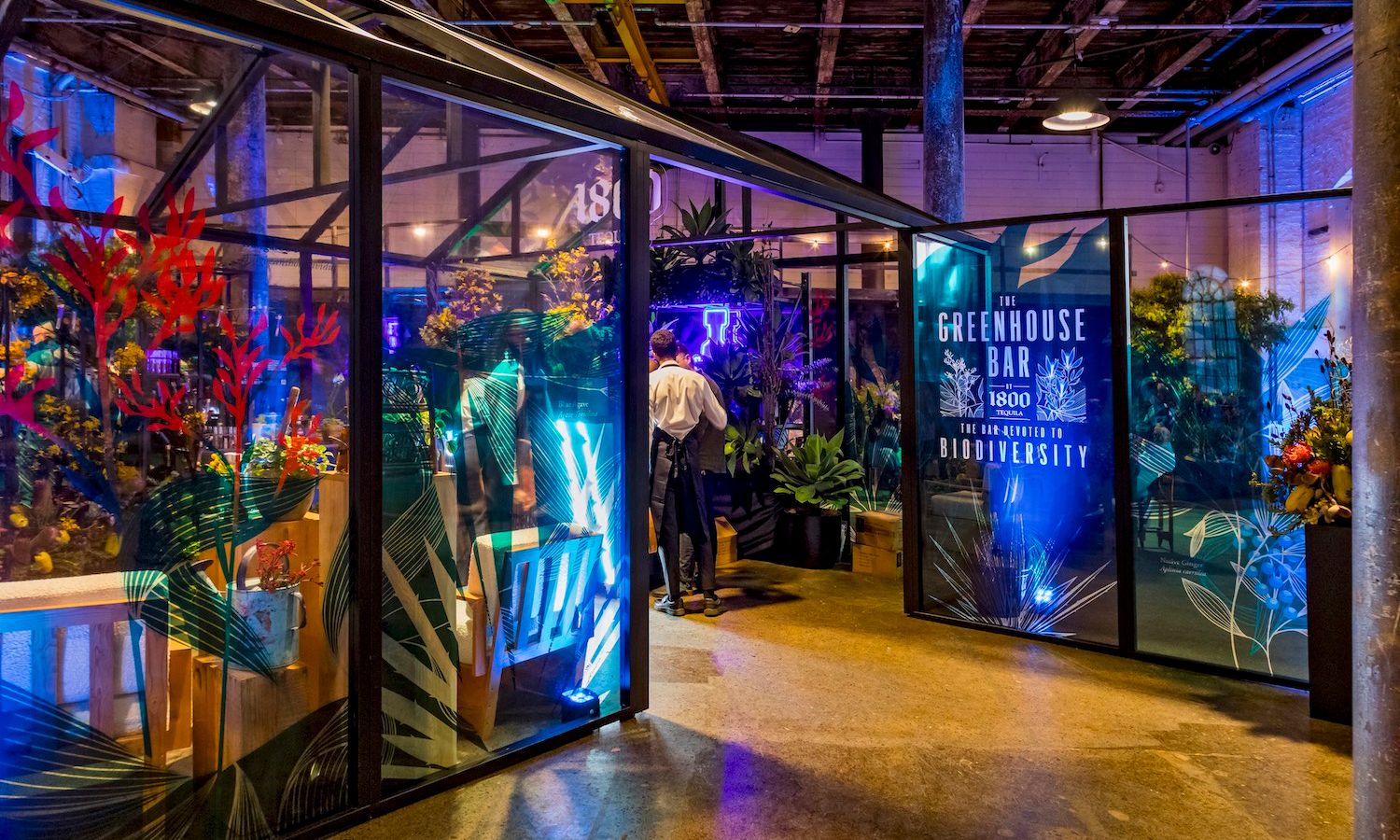
Places and Spaces for Discussion is Key
Perhaps the most intriguing aspect of this marriage between alcohol brands and climate change initiatives is the creativity it has sparked. Younger audiences, known for their appreciation of unique and unconventional approaches, are drawn to innovative campaigns that blend environmental advocacy with the enjoyment of their favourite beverages.
One such campaign was The Greenhouse Bar by 1800 Tequila, which popped up in the Royal Botanic Gardens Sydney. To grab the attention of Gen Z, John Simeons, head of horticulture at Botanical Gardens, had been advocating to create meaningful conversations with younger generations in spaces and places where they’ll sit, learn, and listen. Teaming up with Tequila 1800 just made sense.
In December of last year, 1800 Tequila introduced The Recycled Bar, a groundbreaking initiative designed to bring attention to Australia’s landfill crisis. The bar installation, constructed entirely from recycled and locally sourced materials, aimed to champion the circular waste economy.
Through this endeavour, 1800 Tequila established a space that explained the excellence of the circular waste economy but also conveyed a powerful message, shedding light on the alarming fact that 20 million tonnes of Australian waste find their way to landfills each year — showing the brand’s ability to create awareness through unique experiences, says 1800 Tequila mixologist, Tom McHugh.
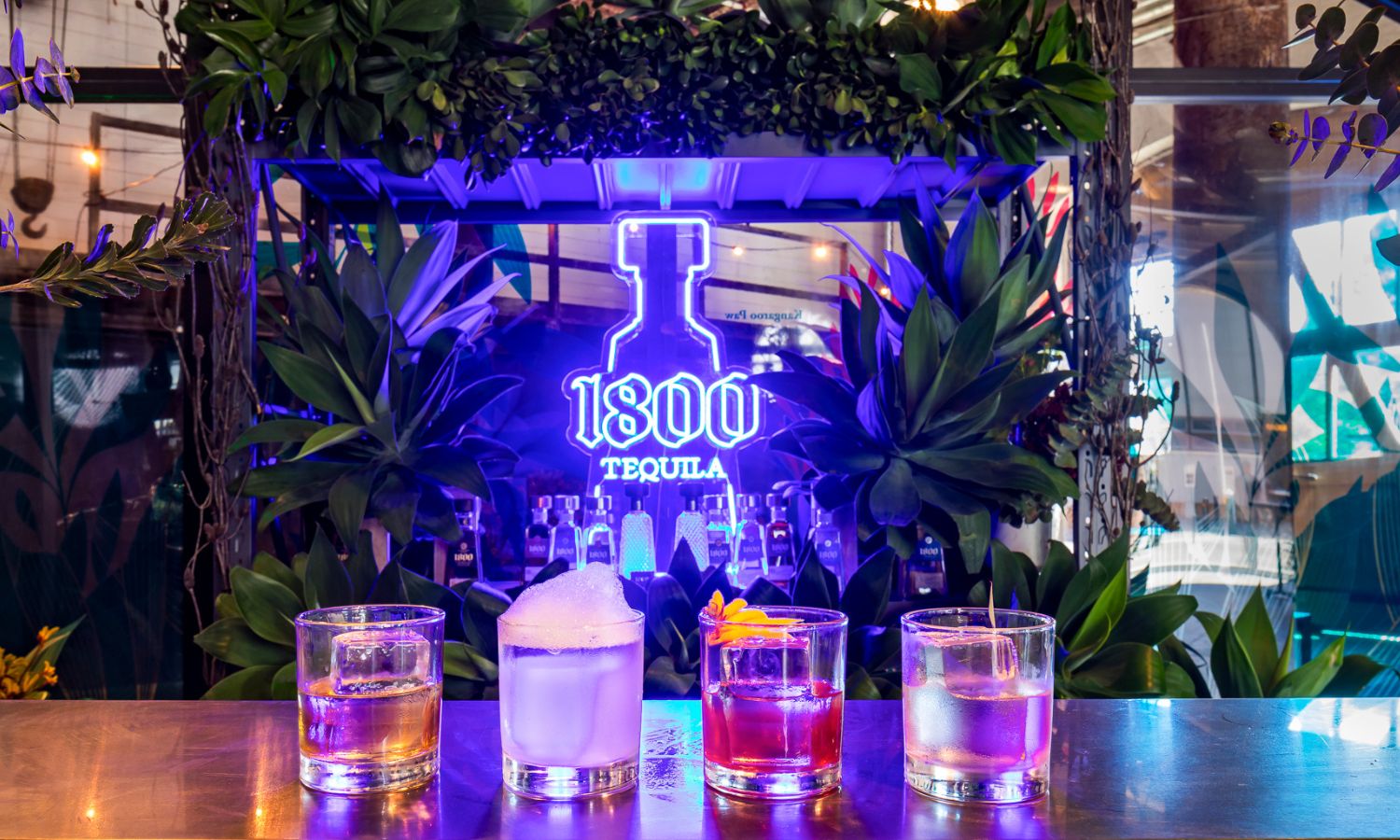
This year, he mentions that research conducted by 1800 Tequila identified Gen Z’s interest in learning more about using Australian native botanicals in tequila cocktails despite three in five having a lack of interest and awareness around Australia’s biodiversity, providing 1800 Tequila with an opportunity to spark conversation with Gen Z.
“The bar experience provided a space to open dialogue on how we can all play a part in protecting Australia’s floral biodiversity whilst raising much-needed awareness.”
By intertwining environmental responsibility with the pleasures of their products, alcohol brands are not only mitigating their impact on the planet but also forging deeper connections with a younger, conscientious audience.
It’s a toast to a greener future, where the clinking of glasses echoes a commitment to sustainability and a celebration of responsible choices.
Related: Rising Temperatures Uncork New Challenges and Opportunities For Australia’s Wine Industry
Related: Our Environmental Laws Aren’t Fit For Purpose When It Comes to Stopping Climate Change
Read more stories from The Latch and subscribe to our email newsletter.







